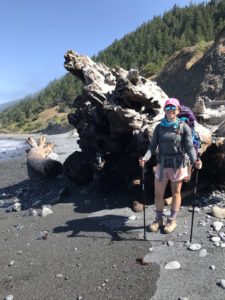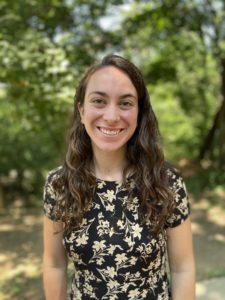Fight or Flight? Ideas on Building Resilient Communities


Since moving away from California eight years ago, I’ve longed to come back home. I spent the first 18 years of my life in the San Francisco Bay Area hiking, running, swimming, camping, skiing…basically taking advantage of all the outdoor recreation actives California has to offer. Through these experiences, my upbringing, and education, the values of land stewardship, conservation, and preservation have always been important to me.
In early September, I finally got my chance. I moved back to the Bay Area to a California, but it was a place I didn’t recognize. Hundreds of thousands of acres were burning, daily Spare the Air days had been issued, and the Air Quality Index was far from “healthy” levels. I witnessed the “apocalyptic” orange skies that made global news. It was immediately depressing and heartbreaking. My feelings since moving home are best summarized through the German word, weltschmerz, which was coined by German author Jean Paul and translates to world pain. Our planet is burning, millions of people are dying of COVID-19, there is monumental social and political unrest, the US is experiencing its most severe and intense hurricane season, on top of the extreme poverty, hunger, and threats to natural resources that have plagued communities for hundreds of years. Sounds like weltschmerz to me.
The current climate, both physically and metaphorically, has induced a fight or flight instinct in many of us. Californians who moved to Oregon to escape wildfire season are now considering where they should go next. Since moving home, I’ve also begun asking myself whether it was the right decision. Should I move somewhere else? Where would I even go? I’ve even considered applying for PhD programs in Europe to escape the imminent threats to both our environmental and political climate.
However, I don’t think leaving and running away from the problem is the right thing to do. As an emergency preparedness planner, I’ve learned there is so much we can do to prepare and empower our neighbors and communities to be ready and resilient.
After studying and working in the field of public environmental health for the last few years, I’ve decided to be hopeful and optimistic. I’ve learned from colleagues and friends in Puerto Rico and the US Virgin Islands what resilience really means. They have lived through and survived so many disasters and major storms, and yet, they remain positive. They stay and they persevere, ultimately setting an example for the rest of us. They continue to amaze and teach me. We have so much to learn from not only them, but all the communities that have experienced and are experiencing hardship, pain, and loss.
As public health leaders, climate leaders, scientists, and members of our communities we must lead by example. We can’t run away from these issues, because they aren’t going anywhere unless we lead on solutions. We must stay and do all we can to be prepared. Some of the climate changes we have caused are baked into the system no matter what we do next, but we can use the tools and learn from previous disasters as we navigate, plan for, and ultimately face these “unnatural” disasters.
Through some COVID-19 prevention initiatives, we’ve seen cities successfully implement more walkable streets and bike lanes. These two examples improve our built environment and require key stakeholders, like urban planners, to rethink how our cities are designed. Not only do these examples improve individual health outcomes, they also decrease fossil fuel emissions. There is so much we can learn from the field of environmental health and emergency management on how to improve the health and resilience of our communities.
As I prepared my “go-bag” in the event of a wildfire evacuation, I thought to myself, “Do I know all my neighbors? How would I know if they all safely evacuated?” My own community has no way to be in touch in the event of an emergency. How is it that in a world when I can read the news from Italy, China, and South Africa and connect with people across the globe that I don’t know my neighbors? Relationships and communication are fundamental to resilience and survival.
I don’t want to move away from California…I love it here. Instead of sadly watching the state burn, let’s plan. We’re living in an unprecedented time; we must rely on each other, our knowledge, and our unique skills to develop and implement plans to be prepared and ready for these climate threats. Get to know your neighbor. Make sure they’re ready. And work together. Let’s dream of an ideal city, and let’s make it happen! Let’s plant urban gardens, add more bike lands, shut roads down to cars. And let’s teach and learn from each other on how to move forward in this public health and climate crisis.
Isabella Kaser, MPH, works as an Emergency Preparedness Planner with CDC Foundation and California Rural Indian Health Board. She is a Climate for Health Ambassador.

